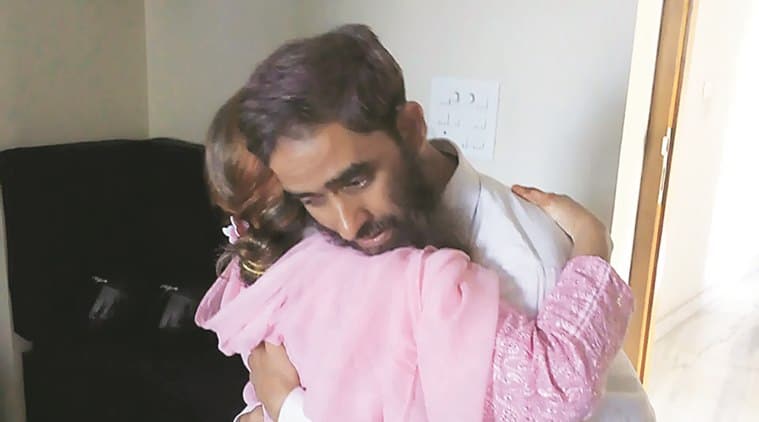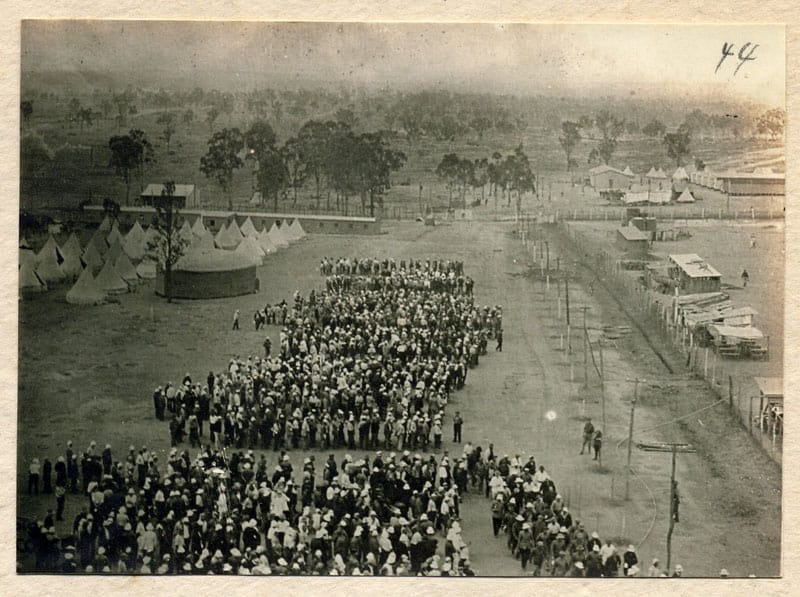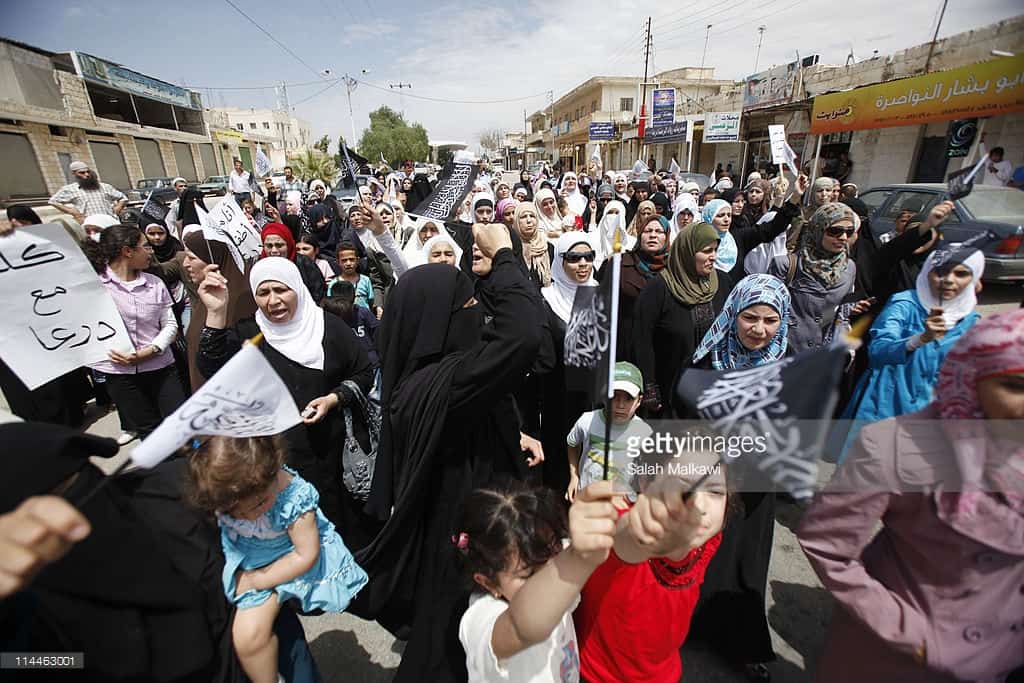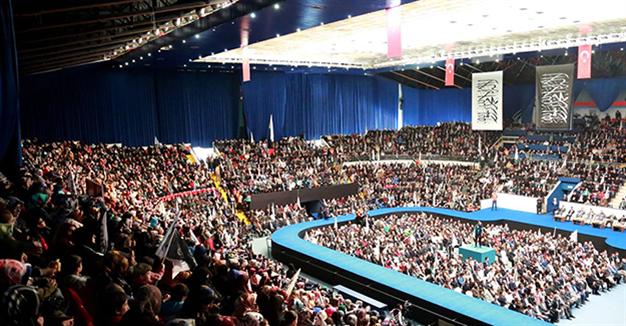In a ghastly example of how terrorism has been exploited in parts of the world, including India, even before the “War on Terror” was a thing in the West, a Muslim man who spent 23 years in prison falsely accused of terrorism has just been released from jail.
Nisar ud-Din Ahmed was jailed 23 years ago, a year after the destruction of the Babri Mosque in India.
On that first anniversary, the political climate in India was extremely tense and tensions between Muslims and Hindus at an all time high. In such a climate, many Muslims were falsely jailed on trumped up accusations of “plotting” terrorist acts. Nisar was one such person. His story is below in full.
In summary:
- He was in prison for 23 years on completely false charges;
- He was jailed at the age of 20; he is now 43, having lost the prime of his life;
- He describes himself as a “walking corpse” on account of what he has been through;
- His father died in 2006, still fighting for justice for his son. He never got to see his son free;
- He was jailed on the basis of false “confessions”.
The videos below briefly depict the cataclysm that was the destruction of India’s 500 year old Babri Masjid, on which further information is soon to come to the HTA website, insha Allah.
After 23 years in jail, I am free but what you see now is a living corpse, says Nisar
He could not walk, he could not sleep. That’s what 23 years in prison had done when they came to an end 17 days ago, in a Jaipur prison late in the evening.
Nisar-ud-din Ahmad says when he stepped out, he saw his brother, two years older than him, Zaheer-ud-din Ahmad, waiting. “I felt a terrible heaviness in my legs. I froze. For a moment, I had forgotten I was free,” said Nisar.
Nisar was among three men who walked out from Jaipur jail after the Supreme Court acquitted them of all charges, setting aside their life sentence and ordering their immediate release on May 11. They were booked for five blasts onboard trains — on the first anniversary of the Babri Masjid demolition — that killed two passengers and injured eight.
By the time they were acquitted, their families had been left shattered by the fight to prove their innocence.
“I was yet to be 20 years old when they threw me in jail. I am 43 today. My younger sister was 12 when I saw her last. Her daughter is 12 now. My niece was a year old. She is already married. My cousin was two years younger than me, she is now a grandmother. A generation has completely skipped from my life.”
Nisar spent his first night of freedom in a hotel in Jaipur. “I couldn’t sleep, there was a bed in the room. All these years, I have slept on the floor on a thin blanket,” he said. Nisar says he remembers January 15, 1994, when he was picked up by police near his home in Gulbarga, Karnataka. He was a second-year student in Pharmacy. “I had an exam in 15 days, I was on my way to college. A police vehicle was waiting. A man showed me his revolver and forced me to get in. The Karnataka Police had no idea about my arrest. This team had come from Hyderabad. They took me to Hyderabad,” he said.
Records show he was produced before a court on February 28, 1994. That’s how his family got to know where he was, he says. His older brother Zaheer-ud-din — Nisar has two brothers, two sisters — who was working in Mumbai as a civil engineer, was picked up that April.
“Our father Noor-ud-din Ahmad left everything to fight a lonely battle to prove our innocence. He didn’t see any hope until he died in 2006. Now there is nothing left.”
“Nobody can imagine what it means to a family whose two young sons are jailed,” said Nisar’s brother Zaheer. Like Nisar, Zaheer, too, was sentenced to life imprisonment but was released on bail on May 9, 2008 by the Supreme Court on health grounds — he was diagnosed with lung cancer in jail.
Zaheer says he could fight the cancer because that was the only way to get his brother out of jail. “I followed the case with singular focus. I kept on making applications to court saying how we have been wronged. Finally, the Supreme Court gave a verdict exonerating both of us and two others.”
Police records link the two to five separate bomb blasts in trains at Kota, Hyderabad, Surat, Kanpur and Mumbai in the intervening night of December 5-6, 1993. The bomb on the Bangalore Kurla Express, while the train was near Karjat Railway Station, was detected by a passenger who threw it out.
The Hyderabad Police picked up Nisar, later his brother Zaheer and their neighbour in Gulbarga, Mohammad Yusuf, a car mechanic. Initially, police booked them for a bomb blast that had taken place in October 1993 in a Muslim educational institute in Hyderabad. This case was registered in Abid Road Police station.
They were also booked in few unsolved bomb blasts that had taken place in August and September that year. Subsequently, they were booked in the serial train blasts.
The only evidence police produced was their alleged custodial confessions — the provisions of Terrorist and Disruptive Activities Act (TADA) were later invoked to make these admissible.
These alleged confessions of Nisar, Zaheer and Yusuf, as per court records, were taken by Hyderabad Police officers at Abid Road Police station.
In his alleged confession, police claimed that Nisar “accepted his role in planting of Bomb in the compartment of A.P. Express on 06.12.1993 and that he was also having two other bombs which were meant for use in K.K. Express on the same day but because of his ill health he could not use them”.
Similarly, the others too had allegedly confessed their role in the train bombings.
In these alleged confessions, however, there was no mention of the case in which Nisar, Zaheer and others from Gulbarga were first arrested and brought to Hyderabad.
While different state police forces had registered cases in each of these blasts, the government handed over the investigation to CBI.
Apart from these three from Gulbarga, the CBI filed charges against 13 more, including Jalees Ansari of Mumbai who was dubbed as the mastermind of the blasts ostensibly carried out to avenge the demolition of Babri Masjid.
On May 21, 1996, the Metropolitan Sessions Judge, Hyderabad, revoked the provisions of TADA from the case. The Andhra government challenged this order before Supreme Court, which said the use of TADA was “very casual” and issued notice to the Police Commissioner, Hyderabad, to show cause why “adverse remarks against him be not made”.
On July 17, 2001, the AP government sought withdrawal of its appeals. Thus the invocation of TADA became invalid in the case where the alleged confession of Nisar, Zaheer and Yusuf was recorded, making the confessions inadmissible.
Nisar’s alleged confession recorded by DCP K V Reddy on March 11, 1994, was a verbatim copy of another alleged confession of his, taken by police Inspector B Shyama Rao on February 27, 1994 which wasn’t even signed.
“It was fabricated and I kept on raising it,” Nisar said. The trial court in Hyderabad acquitted all accused in 2007.
“While the alleged confessions were not accepted in Hyderabad after TADA was dropped, the same confessions were used to charge us in Ajmer,’’ said Nisar.
One of the accused went absconding after he was released on parole in 1999. On February 28, 2004, the designated TADA Court at Ajmer convicted the other 15 accused, including Nisar, his brother Zaheer and Yusuf, and sentenced them to life imprisonment. One among them, a juvenile, was later released by Supreme Court in 2012. They approached Supreme Court and challenged the TADA Court’s order.
Justice Fakkir Mohamed Ibrahim Kalifulla and Justice Uday Umesh Lalit observed that the confessions of the four accused, including Zaheer, Nisar and Yusuf, were “without any legal sanction and cannot be relied upon”.
According to the judgment, Nisar’s “role is neither referred to in the confessions, nor is there any material other than the confession of (Nisar) himself on record. The conviction and sentence of (Nisar) is therefore completely unsustainable”.
Regarding his brother Zaheer, the judgment said: “In the absence of any other material on record to lend any semblance of corroboration to the confession (of the co-accused), we find it extremely difficult to sustain the conviction and sentence of (Zaheer) simply on the basis of confession of (the co-accused).”
“We were framed. It took almost 12 years and finally Supreme Court acquitted us of all charges,” said Nisar. “I am thankful to Supreme Court to give my freedom back. But who will give my life back?”
Advocate Nitya Ramakrishnan, who represented five among the accused, including Nisar and Zaheer in the apex court, says that their alleged “confession in police custody is the beginning and end of the case”.
The Supreme Court upheld the conviction of ten others, including one who is now 85, another is 79 and a third is a 74-year-old. “They are going to die inside jail,” said Nisar.
![]()















